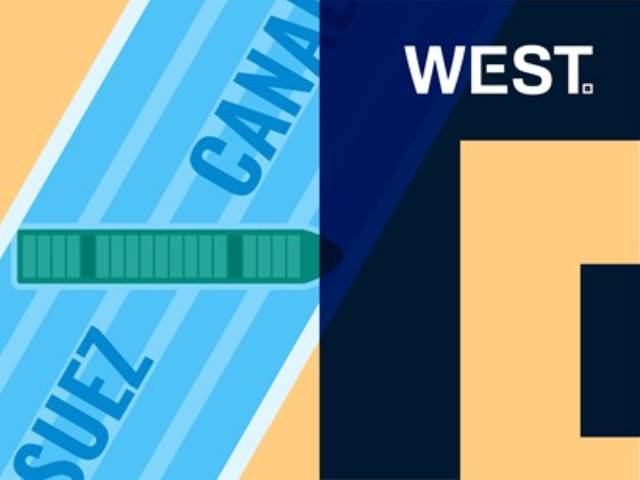The container vessel “Ever Given” grounded in the Suez Canal at about 0540 UTC on 23 March 2021 as it was transiting northbound through the canal en-route to Rotterdam, Netherlands. Thankfully all the crew are safe and accounted for and there have been no reports of pollution or cargo damage.
Efforts are currently underway to safely re-float the vessel and to allow marine traffic in the Suez Canal to resume but in the meantime a sizeable backlog of vessels waiting at either end of the Canal has built up and others are considering whether to re-route around the Cape of Good Hope.
In this article, we will briefly aim to address some of the immediate questions that Members may have if they are affected by the grounding of the “Ever Given”.
Deviation
The carrier contracts to transport cargo from the place of delivery or loading to the place of discharge or delivery and is obliged to proceed with due dispatch on the usual route without any unreasonable deviation or delay. If this route is blocked such as in the case of the “Ever Given” grounding a deviation can rise where the vessel geographically departs from the usual route to arrive at the intended destination.
The Hague Visby Rules say that:
“Any deviation in saving or attempting to save life or property at sea or any reasonable deviation shall not be deemed to be an infringement or breach of this Convention or of the contract of carriage, and the carrier shall not be liable for any loss or damage resulting therefrom”.
Different jurisdictions have different interpretations, and this leads to uncertainty. The consequences of an unreasonable deviation may be loss of rights and limitations under Hague Visby Rules and, potentially, the loss of P&I cover for any amounts over and above those that would have been payable if those rights and limitations had been maintained.
In our view, deviating from the geographical route of transiting through the Suez Canal due to a vessel aground is not a deviation for their own operational and commercial benefit, but to prosecute the voyage safely and effectively. There is therefore prima facie no breach per se of the contract of carriage. We have therefore agreed in principle to hold our Members covered without any additional premium where Members vessel have had to deviate (for example around the Cape of Good Hope) to arrive at their intended destination. The circumstances of each deviation and contract of carriage are different however and Members must therefore consult with their usual Club contacts prior to any deviation in the normal manner.
Claiming for delay
Members with vessels affected by the grounding and blockage may naturally question whether they can bring a claim for the financial consequences of that delay.
We briefly outline the legal basis upon which a non-contractual party may seek to bring a claim against the owners of the blocking vessel and/or the Suez Canal Authority for losses and damages occurred as a result of the canal blockage.
The Suez Canal Authority “SCA” is a public authority that enjoys a body corporate and holds all authority in the management of the Suez Canal without any restriction by the governmental systems.
The SCA has the sole powers in the issuance of the rules of navigation in the Suez Canal as well as the relevant regulations related to organizing traffic within the Suez Canal.
Charterparty/contractual issues
Incidents like this one inevitably give rise to questions as to the rights and liabilities of owners and charterers as a result of delays in performance.
We outline below the position under English law regarding the relevant provisions under a charterparty that may afford various contractual protections to owners and charterers as a result of the canal blockage.
The legal position of the parties with reference to the protections outlined in this circular will vary on a case-by-case basis depending on the specific contract in question and the facts.









































